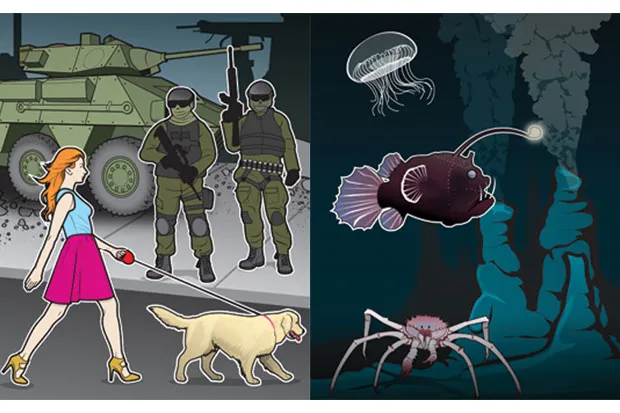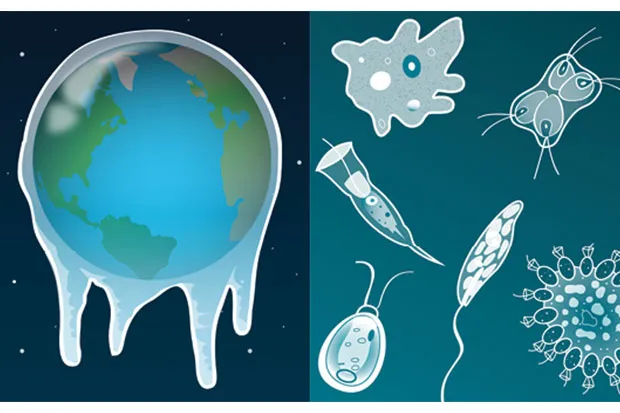1
Oil prices skyrocket
Half the world’s oil is transported by sea. With the shipping lanes frozen over, the international oil market would see drastically restricted supply, just when oil is needed more than ever for heating. This would trigger global economic collapse, leading to martial law in many countries.
2
Food chain collapse
The layer of ice over the oceans would block out most of the light in the surface water. This would kill off marine algae, and the effects would ripple up the food chain until the oceans were almost sterile. Only deep-sea organisms living around hydrothermal vents would survive.

3
Plants die
Ice reflects more sunlight than water, so the global climate would cool drastically, freezing the land as well. Plants would die from lack of water, resulting in less CO2 absorption, so CO2 from volcanoes would slowly build up in the atmosphere and warm the planet back up – but it could take millions of years to thaw the ice.
4
It’s happened before
Geological evidence suggests the oceans may have frozen at least twice before. The last time was around 650 million years ago. Enough single-celled organisms survived that event to repopulate the Earth, but the fossil record isn’t good enough to tell if there were other, multicellular life forms that weren’t so lucky.

Read more thought experiments:
Subscribe to BBC Focus magazine for fascinating new Q&As every month and follow @sciencefocusQA on Twitter for your daily dose of fun facts.
